Elderberry vs Echinacea: Two Powerful Immune Boosters
Hello, health enthusiasts! Today, we’re diving into the world of natural immunity boosters – specifically, elderberry vs echinacea. These two botanicals have been the talk of the town lately, especially in health-conscious circles.
You might have heard of them, you might even have tried them, but do you really know their secrets? Let’s find out!
Table of Contents
Introduction to Elderberry and Echinacea
Elderberry, also known as Sambucus nigra, is a genus of flowering plants in the family Adoxaceae. Its berries and flowers have been used for centuries in traditional herbal medicine due to their antioxidant properties.
On the other hand, Echinacea, a genus of herbaceous flowering plants in the daisy family, is recognized for its potential immune-boosting and anti-inflammatory effects.
Both have been hailed as powerful allies in the fight against illness, and both have a plethora of benefits.
But which one is better? Which one should you choose?
To answer these questions, we’ll need to delve deeper and explore the benefits and uses of each, how they boost your immunity, their potential side effects, where to buy them, and how to incorporate them into your diet.
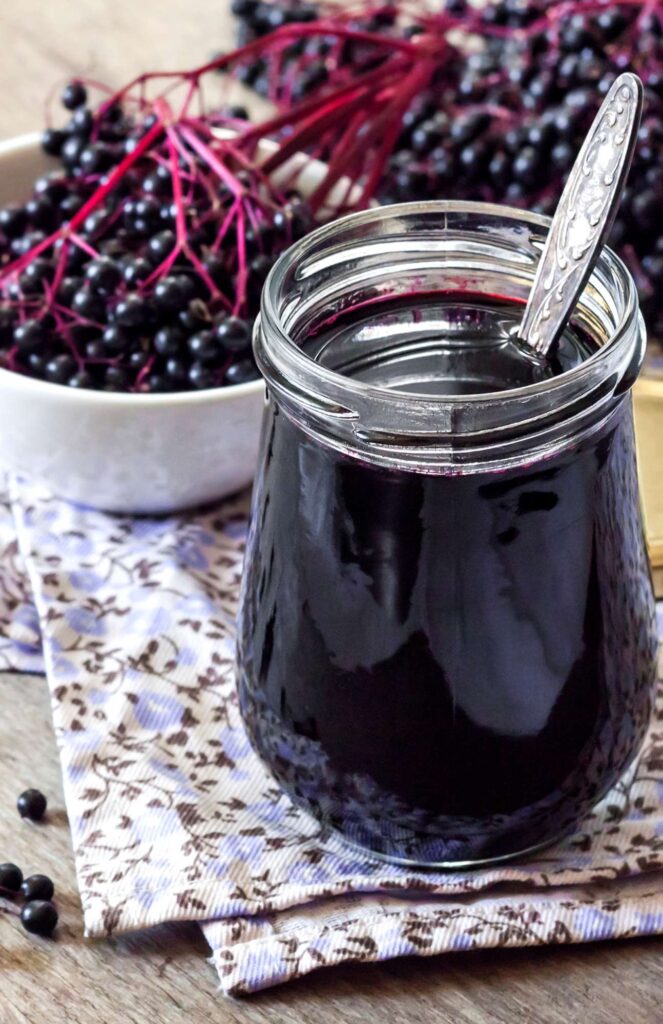
The power of Elderberry: Benefits and Uses
Elderberry has been a staple in folk medicine for a long time. Its popularity might be attributed to its wide range of health benefits.
Firstly, elderberries or elderberry extract are packed with antioxidants and vitamins that may boost your immune system. Much like Magnesium Flakes and Epsom Salts, they could help tame inflammation, lessen stress, and even aid in protecting your heart.
Some experts recommend elderberry to help prevent and ease cold and flu symptoms as well.
Elderberries are also beneficial for your digestive health. They’re high in dietary fiber that can help eliminate constipation, reduce excess gas, and generally increase the health of your gastrointestinal system.
Furthermore, the bioflavonoids present in elderberries can help enhance your skin’s health and appearance. They can protect the skin against damage from the sun and the environment, and also have anti-aging effects.
But that’s not all. This fresh herb has other uses too, like being used to make wine, syrups, and even dyes for basketry.
Truly, elderberry is a powerful plant that offers a multitude of benefits and uses.
The power of Echinacea: Benefits and Uses
Echinacea, on the other hand, also brings its own set of benefits to the table. This flowering plant has been used for hundreds of years to treat various ailments.
Echinacea is known to boost the immune system, helping your body fight off viruses or infections. It’s often used to combat cold symptoms and other respiratory conditions.
Echinacea also stands out for its potential anti-inflammatory properties. It might help reduce inflammation and improve skin health.
It’s commonly used in skincare products due to its soothing properties and its ability to promote skin hydration and reduce wrinkles.
Moreover, this herbal product has been associated with enhanced mental health. Some research suggests that it can help alleviate anxiety and reduce feelings of depression. It’s also used to manage migraines and other types of pain.
Like elderberry, the uses of Echinacea extend beyond health and wellness. It’s a popular plant in gardens due to its attractive flowers and its ability to attract butterflies.
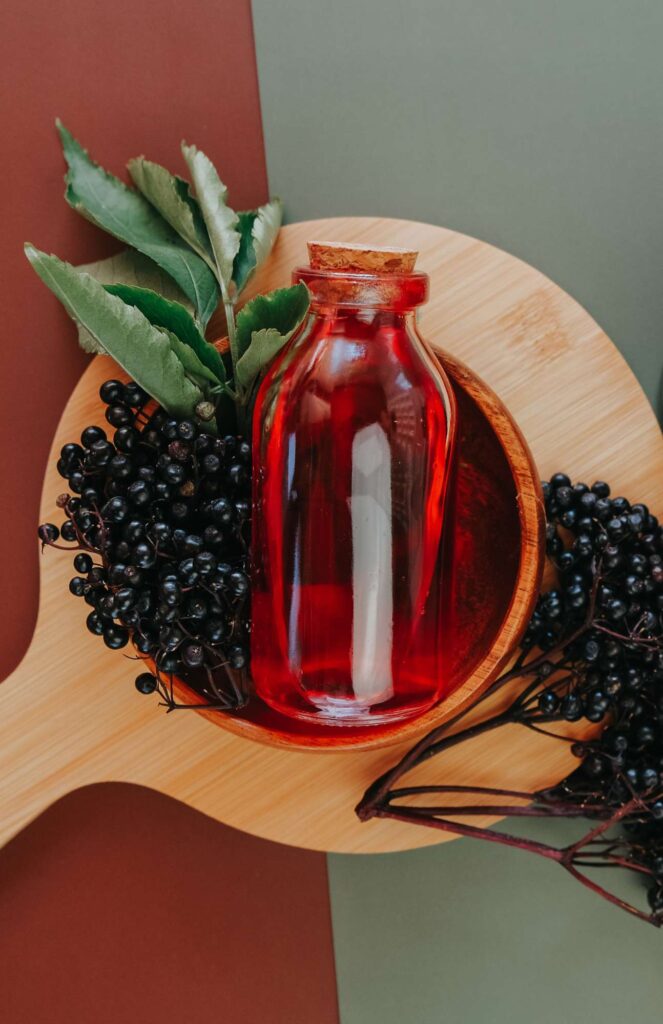
Elderberry vs Echinacea: The comparison
Now that we’ve explored the benefits and uses of both elderberry and echinacea, let’s put them side by side. Both are powerful plants with potential immune-boosting properties.
They’re both rich in antioxidants and can help reduce inflammation. Both are used during the flu season, in treating colds or other viral infections and respiratory conditions.
However, they also have their unique strengths.
Elderberry stands out with its impact on digestive health and skin health. It’s also noted for its stress-reducing properties.
Echinacea, on the other hand, is saluted for its soothing effects on the skin, its potential to enhance mental health, and its ability to manage pain.
It’s important to note that while both plants have numerous potential benefits, they’re not a substitute for medical treatment. Always consult with a healthcare professional before incorporating any new supplement into your regimen.
How Elderberry boosts your immune system
Elderberries are packed with antioxidants and vitamins that can help fortify your immune response. The specific antioxidants found in elderberries, known as anthocyanins, are incredibly efficient at boosting immune health.
They do this by increasing the production of immune cells and reducing inflammation in the body, helping it fight off illness more effectively.
Additional benefits of elderberry is that they are rich in vitamin C, another crucial player in immune support and it can even shorten a cold duration.
Vitamin C stimulates the production of white blood cells, the body’s primary defense against infections. It also functions as an antioxidant, protecting these white blood cells from damage.
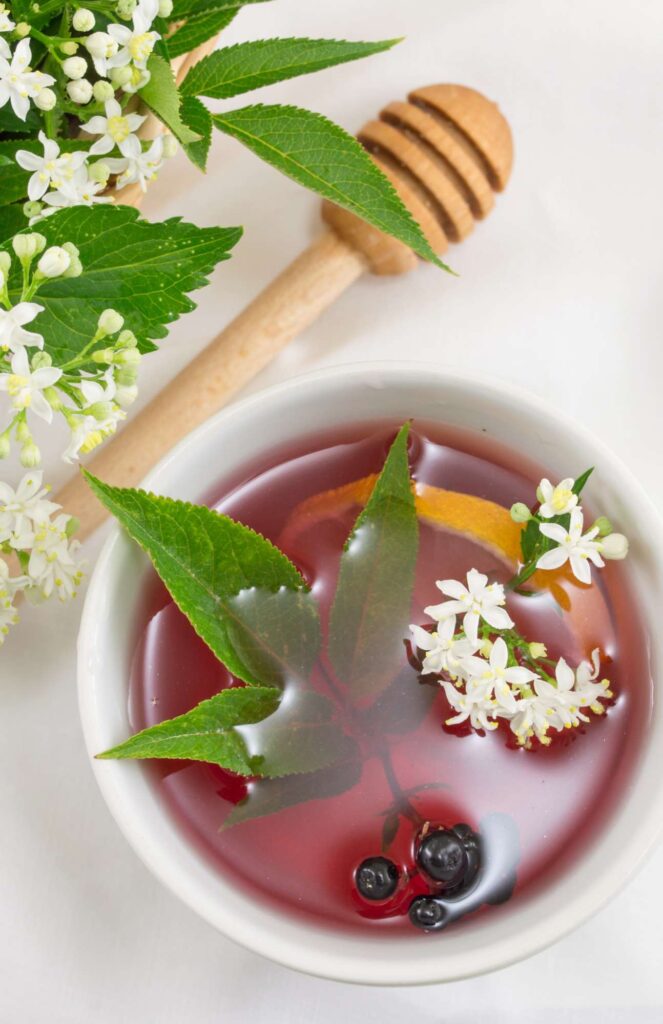
How Echinacea strengthens your immunity
Echinacea, too, has a reputation for being an immune system booster. It contains a complex mix of active substances, some of which are antimicrobial, which makes it fight off harmful bacterial infections.
It also contains antiviral properties, which helps fight off viruses. Moreover, several scientific studies have shown that Echinacea can increase the number of white blood cells, enhancing the body’s overall immune function.
Echinacea also contains phenols, which control the activity of enzymes and cell receptors and protect the body from infections and ultraviolet (UV) radiation damage.
They also have potent antioxidant properties against free radicals. In addition, this great herb has alkamides, which have an effect on the immune system, as well as polysaccharides, glycoproteins, and caffeic acid derivatives.
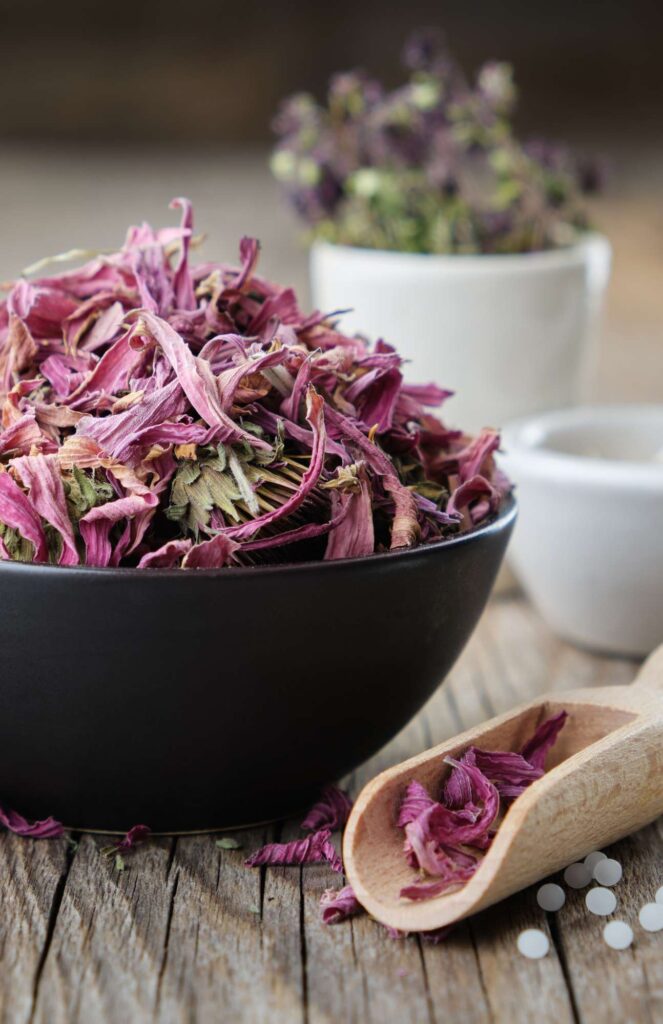
Side-effects of Elderberry and Echinacea
While elderberry and echinacea have many potential benefits, they’re not without side effects. Elderberry is generally safe when taken by mouth for short periods, but it can cause allergic reactions, especially in people who are allergic to plants in the honeysuckle family.
It can also cause digestive issues in some people. Raw elderberries, as well as other parts of the elderberry plant, are poisonous and should not be consumed.
Echinacea, too, can cause side effects. The most common include nausea, stomach pain, rash or hives, swelling, and shortness of breath. People with allergies, especially those allergic to plants in the daisy family, should use echinacea with caution.
Always consult with a healthcare provider before starting any new supplement regimen, especially if you have underlying health conditions or if you’re pregnant or breastfeeding.
Where to buy Elderberry and Echinacea
Both elderberry and echinacea can be found in various forms at health food stores in North America, natural food markets, and online. You can find them in the form of an herbal tea, capsules, tablets, liquid extracts, and they even make elderberry gummies!
There are several great options that include herbal remedies and herbal products that include elderberry & echinacea.
When buying these supplements, always opt for high-quality products from reputable brands. Check for third-party testing and certification to ensure product safety and effectiveness.
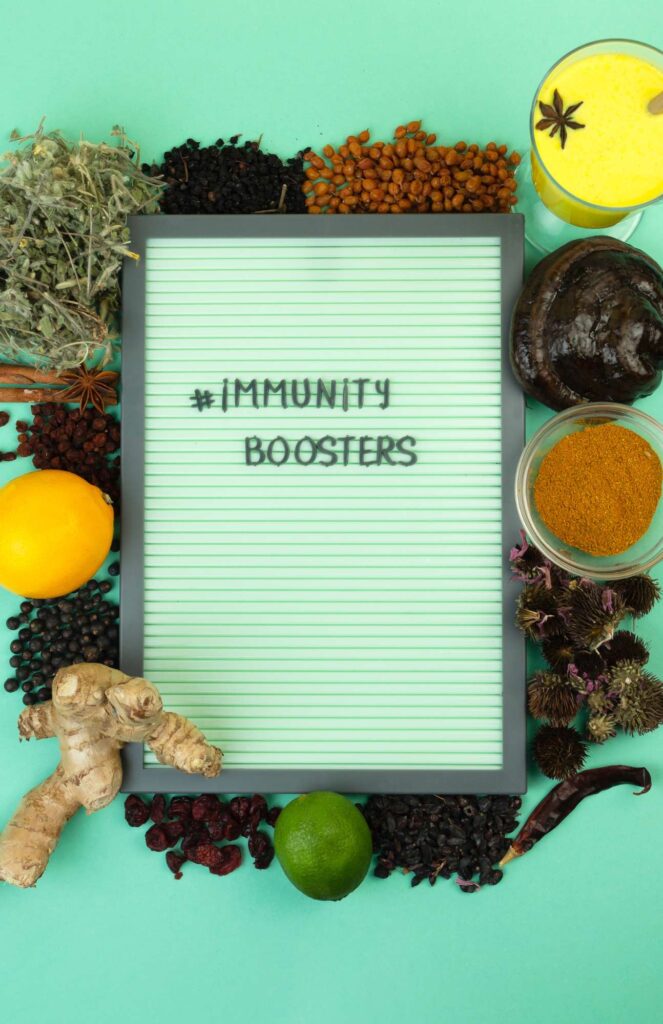
How to incorporate Elderberry and Echinacea into your diet
There are several ways you can incorporate elderberry and echinacea into your diet.
One of my personal favorite natural remedies for its immune-boosting effects is elderberry syrup. Adding this elderberry syrup in with our daily supplements can decrease the number of colds we experience each winter season. It can also help decrease the severity of symptoms when we do happen to get sick.
For elderberry, you can consume it as a juice or tea, or take it as a capsule or syrup. You can also use elderberry jam or jelly on your toast, or add elderberry syrup to your breakfast yogurt or smoothie.
Echinacea can also be consumed in several ways. You can drink it as echinacea tea, take it as a capsule or tablet, or use it an echinacea tinctures or extracts. Some people even add fresh Echinacea flowers to their salads!
Again, remember to consult with a healthcare provider before incorporating these supplements into your diet.
Conclusion: Elderberry vs Echinacea: Which is better for you?
So, elderberry vs echinacea – which is better? The answer is, it depends on you and your specific needs. Both have a variety of potential health benefits and can be a great addition to a balanced diet. However, like any supplement, they should be used with caution and under the supervision of a healthcare provider.
If you’re looking for a natural way to boost your immune system, reduce inflammation, and improve overall health, both elderberry and echinacea are worth considering. Explore their benefits, understand their side effects, and decide which one (or perhaps a combination of both!) is right for you.






